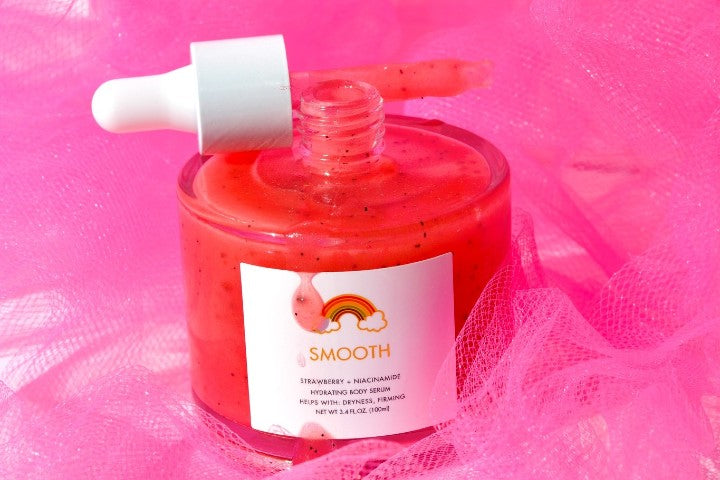7 Salicylic Acid Substitutes to Treat Acne

Salicylic acid is one of the most popular over-the-counter acne-fighting ingredients available. It’s also one of the best for treating blackheads, whiteheads, and clogged pores.
While this BHA might be an effective treatment for acne-prone skin, some might find themselves resistant to this popular breakout-banishing ingredient. Others may even find the oil-sapping exfoliant a little too drying or irritating for their skin.
If your acne isn’t responding to salicylic acid or it’s leaving you dry and itchy, you’re probably wondering what other options are up for grabs. Fortunately, there are plenty of salicylic acid alternatives out there that you can include in your daily skincare routine for blemish-free skin.
Try one of these seven salicylic acid substitutes to start treating acne today.
- Alpha Hydroxy Acids (AHAs)
Ever heard of glycolic acid or lactic acid? Well, these are two of the most common alpha hydroxy acids able to reduce the frequency of breakouts while alleviating acne aftermath like scars and discoloration. AHAs are basically chemical exfoliants that dissolve dead skin cells and excess oil, decongesting pores and preventing pimples. You’ll find them in everything from cleansers to toners and serums, as well as chemical peels.
Lactic acid is the gentler of the two, and perfect for sensitive skin types. However, if you’re looking for something a little stronger, glycolic acid is the best of the two when it comes to treating mild to moderate acne.
You’ll find glycolic acid in Rainbow’s Glow Bundle. It features a face mask and serum powered by glycolic, bakuchiol, and aloe to buff away excess sebum and dead skin, prevent the formation of pimples, and soothe irritation.
- Benzoyl Peroxide
Another famous acne-fighting ingredient, benzoyl peroxide is a great alternative to salicylic acid owing to its antibacterial properties and ability to treat clogged pores. Benzoyl peroxide is especially effective for severe acne.
The only downside to this acne treatment is that it can cause dryness. However, if you’re dealing with cystic acne and nothing you’re using is responding to your skin condition, you might want to consider adding BP formulations to your skincare arsenal.
"The benefit of using [benzoyl peroxide] is that you don't have to rely on an antibiotic to keep the bacteria load on the face down, and this helps reduce the risk of antibiotic resistance," says Kimberly Jerdan, M.D., a board-certified dermatologist in California.
If you have sensitive skin, start with a lower concentration and slowly work your way up to allow your skin to adjust — and swerve nasty side effects.
- Tea Tree Oil
Tea tree oil contains antibacterial and anti-inflammatory properties to kill off acne-causing bacteria while calming redness and irritation.
On the plus side, it can be effective for quelling red, angry pimples. On the negative side, it can also be really drying for some skin types — and potentially even irritating if it’s not diluted prior to application.
The best way to apply it is by first diluting it, and then applying it to affected areas using a damp Q-tip to dilute it further and significantly reduce your risk of irritation.
- Retinol
Retinol is a vitamin A derivative that boosts collagen production and exfoliates the skin to unclog pores, clear blemishes, and reduce the appearance of fine lines and wrinkles. While you’ll typically find it in anti-aging creams, lotions, and serums, this active ingredients works wonders for acne-prone skin.
It functions much like any other exfoliant, loosening the bond between skin cells and unclogging pores to alleviate acne. For those with oily skin, retinol also helps to reduce oil production in the skin.
“Retinoids are the absolute backbone of an acne treatment since they treat acne by de-clogging pores,” explains board-certified dermatologist Melissa Levin, MD.
She adds that topical retinoids have also been proven to “improve skin discoloration and texture and, therefore, restore the skin from prior outbreaks.”
- Niacinamide
According to studies, niacinamide can be an effective topical acne treatment due to it being able to limit the overproduction of sebum in the skin, resulting in balanced pore size and less clogging. It’s also been shown to help heal acne scars and hyperpigmentation.
You’ll find niacinamide in Rainbow’s Smooth Body Serum, along with antioxidant-rich strawberries to brighten, firm, and clarify skin. Besides keeping skin clear and taut, niacinamide treats dry skin thanks to its hydrating powers.
- Zinc
This essential nutrient might support immunity, but it also supports a clearer, blemish-free complexion owing to its anti-microbial, anti-inflammatory, and antioxidant properties. As per research, zinc is an effective acne treatment that quells inflammation in acne lesions and controls excess oil production, keeping pores clear and pimples away.
You’ll find zinc in a range of skincare products, including toners, moisturizers, spot treatments, and even sunscreens.
- Sulfur
“Topical sulfur can be an effective treatment for acne,” says Dr. Jeanine Downie, a board-certified dermatologist and founder of Image Dermatology in Montclair, N.J.. “It is effective for some people because it is antibacterial.”
While it’s generally well-tolerated by all skin types, Downie warns against using the ingredient if you experience allergy symptoms while using it. That said, it is a well-recommended treatment option worthy of your time and money.
HOW LONG DOES IT TAKE ACNE PRODUCTS TO WORK?
If you’re parting ways with your salicylic acid treatments in favor of trying something new, it’s important to stay consistent with your routine, and don’t let the lack of instant gratification burst your bubble.
According to the derms, it can take up to a week for your skin to adjust to a new product — and that includes both topical treatments and acne medications. In order to see the full results from a new product, it can take anywhere from two to six weeks.
If you’re not seeing results after six weeks, book an appointment with a dermatologist for a customized acne treatment plan.
Salicylic acid might be one of the best acne-targeting ingredients out there, but it’s certainly not the only one. If your skin isn’t reacting well to SA, consider looking for products containing one or more of the acne-fighting ingredients above.
